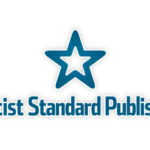ATLANTA (ABP)—A society formed 20 years ago to chronicle history of the Southern Baptist Convention from the moderate perspective during the last two decades of the 20th century has ended its operations and given a $10,000 gift endowment to fund a series of legacy articles in the monthly news magazine Baptists Today.
The William H. Whitsitt Baptist Heritage Society was established in 1992 by historians worried that history of the inerrancy controversy between fundamentalists and moderates in the nation’s second-largest faith group would be one-sided when written by conservatives controlling the convention’s official archives.
After trustees of the Baptist Sunday School Board (now LifeWay Christian Resources) refused to release an official history of the organization written by Southwestern Baptist Theological Seminary professor Leon McBeth in 1990, Mercer University professor Walter Shurden convened a gathering of moderates concerned about preserving their side of the story.
The conference titled “The History of the Moderate Movement of the SBC" led to publication of The Struggle for the Soul of the SBC: Moderate Responses to the Fundamentalist Movement by Mercer University Press in 1994.
During the final session of the gathering in October of 1992, a proposal was made to create a new organization to preserve the history and memory of the moderate movement. A collection raised $1,500 and addresses were collected for a mailing list. Walker Knight, a layman and founding editor of SBC Today (later renamed Baptists Today) was the first president.
The group chose a namesake of William Heth Whitsitt, who was forced to resign as president of Southern Baptist Theological Seminary in 1899.
While studying abroad, Whitsitt became convinced that modern Baptists began in Europe in the 17th century and not in the first century as commonly believed by followers of an influential and combative faction called the Landmark Movement.
During the 20th century most historians agreed with Whitsitt, or alternatively traced roots a little earlier to the Anabaptist movement, also on European soil, vindicating him as a symbol of academic freedom and integrity.
Each year the society presented a William H. Whitsitt Courage Award to a recipient who “demonstrated courage within the tradition and heritage of the Baptist faith,” and “in the face of strong opposition, has made a lasting contribution” to Baptist values through such things as “pursing intellectual integrity” and “championing soul freedom.”
Sign up for our weekly edition and get all our headlines in your inbox on Thursdays
The society also published a journal and met annually during the General Assembly of the Cooperative Baptist Fellowship.
Loyd Allen, a professor at McAfee School of Theology and longtime executive director of the Whitsitt Society, said in an article in the July 2012 issue of Baptists Today that over time circulation to the journal dropped and attendance at annual meetings declined, resulting in a loss in revenue.
Believing that the founding purpose is still relevant, the society chose to reassign its remaining resources to sponsor a series of articles in Baptists Today focused specifically on the liberty-of-conscience theme.
“As longtime executive director of the Whitsitt Society, I close this chapter of my Baptist service with a bit of nostalgia, but I look back with pleasure at the stories told and forward with hope in the light shed on the Baptist heritage by committed lovers of Christian freedom,” Allen wrote.














We seek to connect God’s story and God’s people around the world. To learn more about God’s story, click here.
Send comments and feedback to Eric Black, our editor. For comments to be published, please specify “letter to the editor.” Maximum length for publication is 300 words.